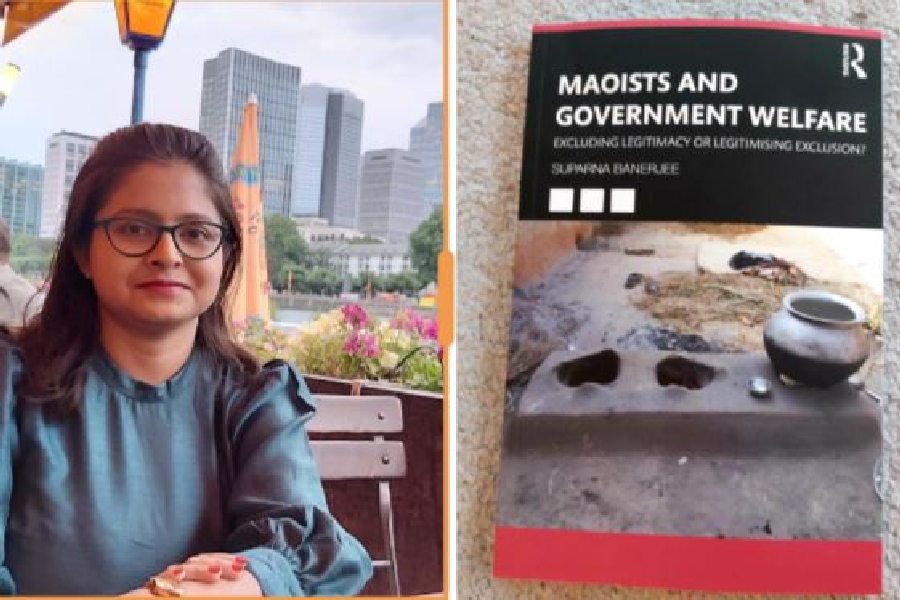For Suparna Banerjee, ‘stories of the people, irrespective of the side they belonged to,’ are important to share. And hence post her thesis at the Centre for Development Research, University of Bonn, Germany, Banerjee decided to convert surplus data into a book — Maoists and Government Welfare: Excluding Legitimacy or Legitimising Exclusion? Her research on The ‘Good’ Legitimacy; The ‘Bad’ Legitimacy: A study of conflict prolongation through the prism of state responses towards Maoism in India, opened floodgates of stories that touch her and compelled her to record them in a narrative form. She said, “I was inclined towards producing a narrative style of writing where I could share the stories of the affected people. This was not possible in the case of my thesis which had to follow a certain framework. The stories of the people, irrespective of the side they belonged to, were important for me to share. Respondents went out of their way (often risking their lives) to talk to me and share the nuances of the conflict. For me, it was important to discuss it without any bias. Ordinary civilians, innocent adivasi, local police, paramilitary forces, or a dhoti-clad ideology infused bhadrolok — all are part and parcel of a system that has been nurturing violence.” She adds, “It was against people like me who most definitely represent the idea of the state in India, that the Maoists had raised their arm. This book provided me with the opportunity to share all those inner struggles and be candid about it.”
The topic of Maoism/Naxalism in India which completed five decades in 2017 has influenced movies, prose, poems, novels and songs over generations. While her thesis primarily dealt with the question of, ‘What have been the state policies towards addressing the Maoist conflict for the last 50 years and what have been the gaps in them?’ her debut book dealt with a more philosophical question of understanding, ‘Why do states and people behave the way they do?’
Talking about the challenges of keeping the narrative different from her doctorate she said, “It was a challenge because any overlapping would have been deemed plagiarism. Therefore, I had to be very cautious and extra careful in what I was presenting in my book.”
Germany-based and Howrah-born Banerjee intends to continue her literary career with sequels to the book. She said, “I would like to publish the experience of my fieldwork in the Maoist-affected villages and the forest. This book would be more of a combination of fiction and non-fiction where I shall highlight my political understanding and how it inspired a middle-class girl from a small town to dream big in a foreign land. The second one would be a more academic one.”






